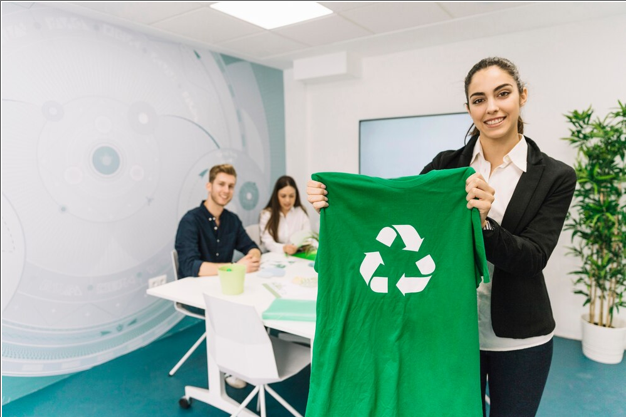Green Growth
Green Growth: Effective Strategies for Building an Eco-Friendly Business Model

In an era characterized by climate awareness and ecological responsibilities, the blueprint for business triumph is evolving. Savvy entrepreneurs recognize that sustainability is not just an environmental obligation but a powerful driver of innovation and differentiation in a crowded market. Embracing eco-friendly business models offers a win-win scenario: enhancing your brand’s appeal while fulfilling ecological commitments.
Empowering Teams to Champion Sustainability
Involving your team in sustainability initiatives can significantly enhance your organization’s commitment to eco-friendly practices. By providing employees with the right training and resources, you empower them to advocate for sustainable practices. Encouraging their active participation enables them to contribute meaningfully to sustainability programs, boosting their enthusiasm and dedication. This inclusive approach not only embeds sustainability throughout your organization but also fosters a collective commitment to green goals.
Building Community Engagement Through Social Media
Social media offers a dynamic platform to engage your customers in your sustainability journey. By launching interactive challenges or polls with a unique hashtag, you can effectively promote your eco-friendly initiatives while building a sense of community. Encouraging followers to share their tips on reducing carbon footprints or post eco-friendly meal ideas can amplify your impact and strengthen relationships with your audience. Partnering with environmental organizations on platforms like Instagram and Facebook can broaden your reach and showcase your commitment to sustainability, resonating with socially conscious consumers.
Embracing Circular Economy Models
To truly embrace sustainability, consider adopting circular economy models that focus on extending product life cycles and minimizing waste. By prioritizing designs that emphasize reusability and recyclability, your business can keep products in circulation longer, reducing environmental impact. Implementing strategies such as upcycling, remanufacturing, and participating in second-hand markets can significantly enhance resource efficiency. Transitioning towards a zero-waste model not only conserves resources but also positions your business as a leader in sustainable practices, aligning with modern consumer preferences for eco-friendly products.
Elevating Your Expertise Through an Online Degree
The importance of a business degree includes sharpening your skills in business and marketing. Whether you pursue a degree in marketing, business, communications, or management, the knowledge you gain can empower your sustainable business to thrive. Online degree programs offer the flexibility needed to manage your business while advancing your education simultaneously.
Maximizing Asset Lifespan and Efficiency
Implementing a predictive maintenance strategy can greatly extend the lifespan and efficiency of your assets, reducing downtime and repair costs. By leveraging advanced technologies like machine learning and real-time data analytics, you can monitor equipment health and predict potential failures, allowing for timely interventions. This proactive approach not only maintains asset reliability but also optimizes performance and reduces environmental impact.
Innovating with Product Lifecycle Analysis
Utilizing a product lifecycle assessment (LCA) is crucial for developing environmentally sustainable products and promoting effective recycling processes. By evaluating each stage of a product’s life, from design to disposal, you gain a comprehensive view of its environmental impact. This holistic approach can identify opportunities to reduce emissions and waste. Incorporating sustainability in product development not only enhances your brand image but also fosters customer loyalty by demonstrating a commitment to ecological responsibility.
Rewarding Green Choices with Loyalty Programs
Green loyalty programs are an excellent way to incentivize customers to make environmentally friendly purchasing decisions. Offering rewards like discounts for eco-conscious choices not only boosts customer satisfaction but also aligns your brand with the values of a growing segment of consumers. By aligning your marketing strategy with sustainability efforts, you enhance your brand reputation and contribute to a more sustainable future.
Harnessing the power of eco-conscious innovation is more than just a trend; it’s the heart of a sustainable future. By weaving sustainability into the fabric of your business model, you’re not just addressing today’s ecological challenges, but you’re also pioneering a legacy of responsible business practices. Let your business be the catalyst that spurs a movement towards a greener, more sustainable economy where environmental stewardship and economic success walk hand in hand.
CATTCC comment: This blogpost was put together by Brenda Kirby. The CATTCC policy is an open format where opinions are able to be voiced. CATTCC does not endorse political agendas, including those of green politics. Rather CATTTCC employs the common sense methods of sustainability through the subscription with nature. The CATTCC mission is to engage publicly regarding sustainable transportation. Since transportation is the foundation to all urban growth, sustainable transportation is of great importance.
CATTCC gladly welcomes transportation related guest posts, we encourage non-AI written pieces.



